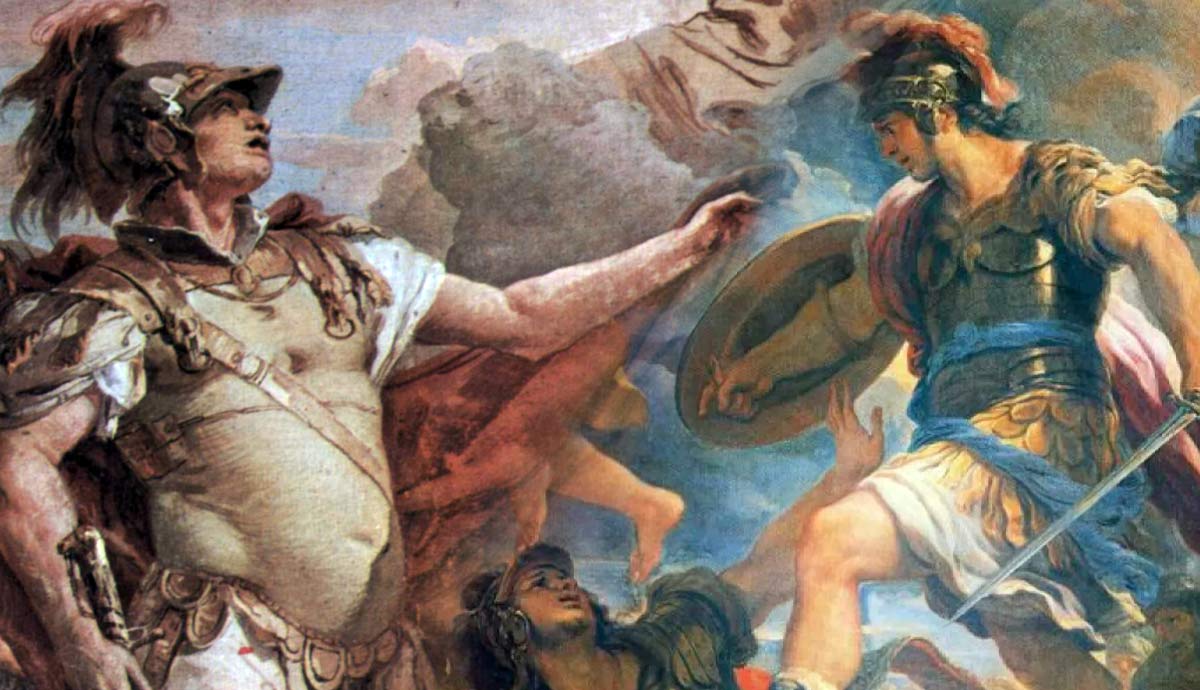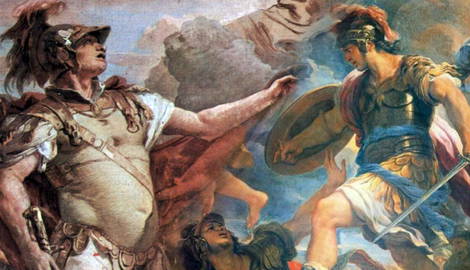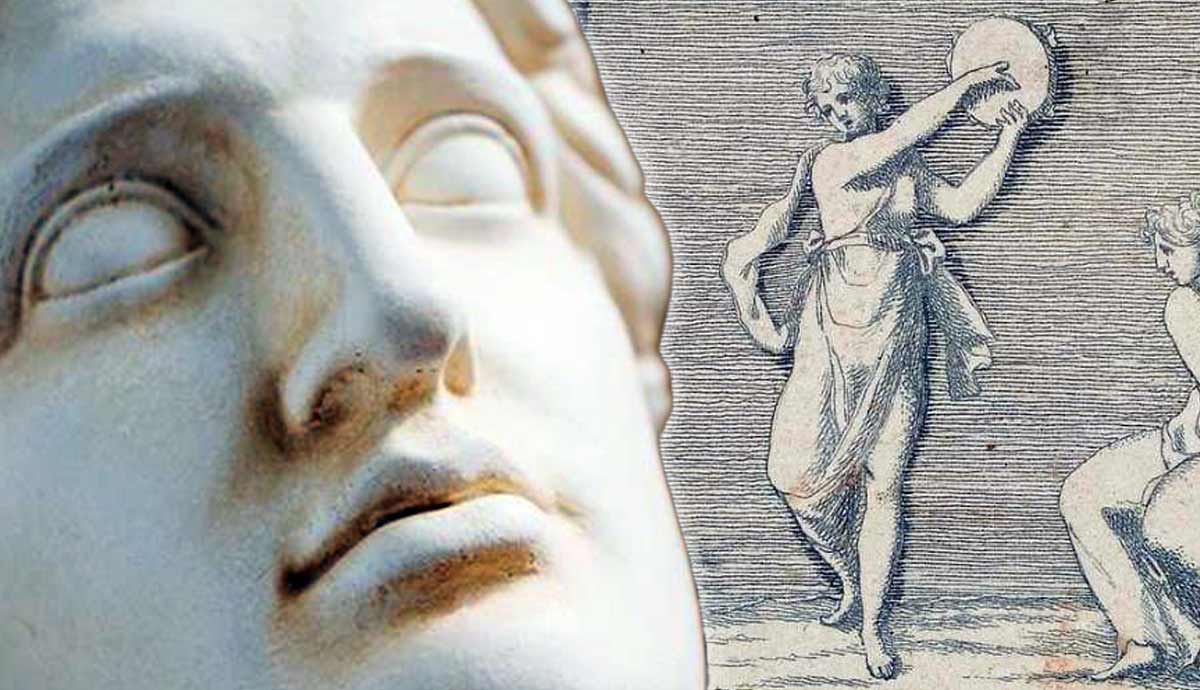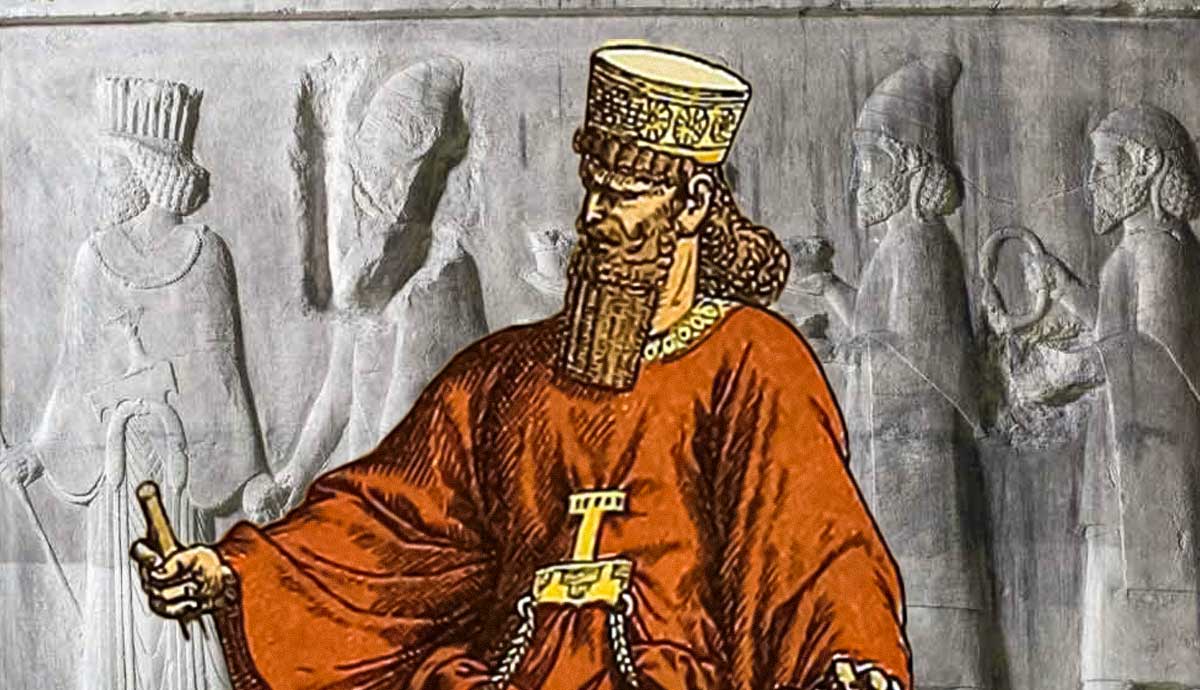
Originally a minor figure in the Homeric epic The Iliad, Aeneas is cast by Virgil as the hero in his epic The Aeneid. This is an appropriate choice for Augustan Rome when Virgil was writing. Aeneas displays important virtues and an expedient bloodline, but he does not always meet expectations of what might be considered a hero. He shows weakness and uncertainty, plus he ultimately acts “against his own will.” He raises questions about what makes a hero and whether one chooses to become a hero.
Aeaneas: An Epic Hero From the Start

Virgil wisely chooses his hero for his epic. He selected a character who had already been highlighted in the foundational Greek epic, The Iliad, yet whose characterization and role were still vague. This leaves Virgil plenty of liberty to mold him as required. Although a minor character in The Iliad, Homer singled out Aeneas for his bravery, skill, and connection with the gods. The character of Aeneas provided by Homer, therefore, offers a wonderful foundation on which Virgil could build his hero.
Aeneas shares characteristics with previous ancient heroes. Firstly, his divine heritage. He is the son of Venus/Aphrodite, which confers on him the status of a demigod. Additionally, he is depicted as a great fighter, demonstrating similar skills in battle in The Aeneid as he displayed in The Iliad. This is particularly notable in Book Two of The Aeneid when Aeneas is defending Troy and later in Book 12 in his battle with Turnus. Aeneas, like Odysseus, possesses physical beauty, which allows him to seduce and gain female favors, for example, in his seduction of Dido.
The character of Aeneas ultimately provides Rome with an anchor in the heroic epic past. Aeneas was a contemporary of the great heroes Hector and Achilles and a member of the royal house of Troy. His associations allow the Romans to view Aeneas—their own hero and supposed ancestor—within the continuum of that heroic tradition and chronology. Essentially, the character of Aeneas provides the bridge between the Greek epic heroes and the Roman Empire.
A Hero of His Time

Despite being anchored in ancient Greek epic and heroic conventions, Aeneas is transformed into a Roman hero with Roman values who would appeal to a Roman audience in the age of Augustus. Aeneas is often described as pious in The Iliad. In The Aeneid, his piety assumes a wider meaning of being generally dutiful toward his family, his people, the gods, and his mission. This sense of duty would likely have appealed to the military-minded Romans seeking to expand the Roman Empire for the good of all, even if at great personal sacrifice.
Aeneas is famously dutiful to his father, Anchises, in contrast to the Greek heroes Hector and Achilles, who were unable to protect their fathers. He is also dutiful towards his son, Ascanius. Indeed, Aeneas’ dedication to his son is his main motivation for following his destiny. It proves more important than listening to the gods or the fate of the Roman Empire, and it leads him to abandon his lover, Dido. The importance Aeneas places in the future and his dedication to the next generation, therefore, differentiates him from the heroes of The Iliad and The Odyssey. Aeneas is instead ready to sacrifice the present moment for the greater future — effacing himself for the greater good.
Virgil portrays the hero as “father Aeneas” towards his people and his nation. This would have appealed to leaders like Augustus, who portrayed himself not as a king or a dictator but as princeps, meaning first among equals, and pater patriae, meaning father of the fatherland. Both Julius Caesar and Augustus also tied themselves to Aeneas through common ancestry, claiming that they were also descendants of Venus.

Virgil gives his hero national significance and ties his existence and destiny to the destiny of the Roman Empire. His epic also provided reassurance that the gods were supportive of the Roman Empire and that Rome’s leader at the time, Augustus, was the “chosen one.” Aeneas was a hero who could inspire the beaten-down Romans, who had just lived through years of civil war and a failing Republic, to have faith in the Empire they were building and the leaders who were leading them. Aeneas, the hero in fiction, reflected and was reflected by Augustus, the hero of the moment.
Aeneas demonstrated a much broader ambition than previous epic heroes. Hector, for example, sought only to defend his city, Achilles was motivated by personal glory and revenge, while Odysseus’ quest was a homecoming. Aeneas instead sought to found the Roman Empire. This enormous accomplishment placed Aeneas on a larger stage.
Furthermore, no heroes in The Iliad were particularly successful. Hector and Patroclus die, while Achilles is known to die before the Greeks gain Troy. However, Aeneas is successful in his mission: he found a city and a people. Success, therefore, becomes part of Roman national identity.
A Contradictory Hero? A Contradictory Empire?

Another characteristic trait of Aeneas is his desire to offer mercy and peace. In contrast to The Iliad, where confrontation is the norm, Aeneas wishes to be a character who unites rather than divides: “I shall not command Italians to bow to the Trojans, nor do I seek the sceptre for myself. May both nations, undefeated, under equal laws, march together in an eternal pact of peace” (Book 12). Aeneas sought to join Latium and the Trojans through his marriage to Lavinia. This desire for peace would have been particularly relatable to Virgil’s contemporaries due to Rome’s recurrent civil wars, most recently between Augustus and Mark Antony. A hero who valued peace and unity would have been all the more important.
However, Aeneas’ intentions for peace ultimately fail, at least regarding his having to fight and then deciding to kill his Italian competitor, Turnus, even though Turnus begs for mercy. Maybe through this ambiguous end to the epic, Virgil is highlighting the means required to enforce peace as well as the appeal of personal vengeance. Therefore, the confrontation between Aeneas’ ideals and his actions makes him an interesting hero for an epic: to achieve his ideal, he has to sacrifice it in practice. Rome, too, must make sacrifices for peace, which was won at the point of a sword.
A Hero Against His Own Will?

Aeneas’ heroism is indeed further complicated by the fact that his mission often goes against his personal desires and emotions. Indeed, when we first meet Aeneas, he seems weak and is wishing for death. It is not the most heroic of entrances. Aeneas has to leave his home of Troy and his love interests for the greater good of the Roman Empire. He is a hero who self-sacrifices repeatedly. His personal life is undone by political necessity. His numerous personal losses allow us to have greater empathy for him while highlighting the self-sacrifice required from all contemporary Romans for the glory of the Roman Empire. It also leads modern readers to consider that if Aeneas can share some of our weaknesses, maybe we can share some of his strengths.
Still, statements such as “I left your land against my will” and “I sail for Italy not of my own free will” shock a modern audience, less used to ideas of fate and more comfortable with concepts of self-determination and following our desires. However, this is ironic because most of us are constrained by relationships, just like Aeneas with his family and descendants, as well as societal pressures. Aeneas exemplifies the heroism of doing what you should do when you do not want to. This is a version of heroism that is not attractive to the individual but is necessary for society.









